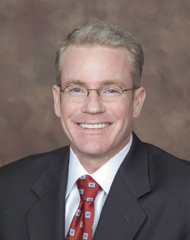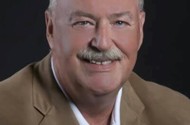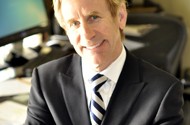
Christopher P. Hill, RFC® is currently the President of Wealth and Income Group, LLC, with offices located in the Washington D.C. area. Mr. Hill began the first decade of his career in the financial services industry working closely with one of the nation’s leading money managers. For the past 23 years, Mr. Hill has been a nationally recognized speaker, editor, seminar expert, and MDRT Top of the Table Producer. Mr. Hill also received the IARFC Cato Award in 2008 and 2009 for his contributions to one of the most widely circulated magazines in the financial services industry, “The Register.” After suffering the loss of a close loved one in 2008, Mr. Hill was inspired to create FuneralResources.com and MemorialTechnology.com. Today, these family-focused websites are the leading online resource centers to help families and funeral directors make a difficult situation easier, as well as proactively encourage and promote end-of-life celebration planning.
Q: What originally got you interested in the insurance industry?
A: While getting my Finance Degree from the University of Florida, I spent every summer working for my father, who had been a stockbroker for 35 years. Today, my father is 70 and still in the business as a Senior Portfolio Manager with UBS. What a blessing this has been. I began my career after college working closely with one of the top money managers in the world with over 40 years of experience as a full-time investment professional.
So I was very fortunate that during my first 12 years in the financial services industry, I was able to learn more about the stock market and investing than most people in this business learn in a lifetime.
But when I decided to start my own practice, I quickly realized that I was well-versed in investing but completely uneducated with regards to life insurance. At that time, I was in my early 30’s and single, so I didn’t personally own any life insurance. Heck, I didn’t even know the difference between Term and Whole Life insurance.
Thankfully, I made the decision to join an independent financial planning firm which was a subsidiary of The Guardian Life Insurance Company. Needless to say, they placed a heavy emphasis on life insurance and put me through some extremely high-quality training.
Once I began learning about life insurance, I quickly realized that it was an equal, if not more important, part of a comprehensive financial plan. After getting married and having kids, my ability to connect with life insurance went to a whole new level. From that point forward, I become passionate about educating, promoting, and encouraging families to add this all-important family protection to the plans we were building together.
I have always said “90% of our job is avoiding large losses.” This not only applies to our client’s investment portfolios, but also to any situation that can cause significant emotional and financial loss. The death of a breadwinner is clearly a large emotional and financial loss, and life insurance is designed to help avoid the financial aspects of that pain.
Q: What do you believe is the biggest challenge for life insurance agents in the field today?
A: The biggest challenge I see in the industry is that firms place a great deal of time, energy, and money on training agents to learn and sell life insurance. However, they provide little-to-no training, support, or money to help agents learn how to market.
There is a great saying I once learned; “Sales keeps you in business. Marketing keeps you in sales.” You can be the smartest life insurance agent in the world, and the best salesperson in the world, but if you don’t have any families to see, you are destined for failure.
I believe the key to selling life insurance is education. So the large majority of my time, effort, and money have been directed towards marketing via seminars. I truly believe hosting a seminar is the single greatest way to market yourself and your business. Seminars give you time to help people determine four things that are most important to them: 1) Do they like you? 2) Do the trust you? 3) Do they think you are competent? 4) Do they think you have their best interests at heart?
Q: Can you share a great experience that taught you a lesson you still apply today?
A: For decades, insurance agents have debated over “the right amount” of life insurance. Early in my career, I was fortunate enough to learn the correct answer to this mystery.
The right amount of insurance is … as much as you can get! Period. I have yet to meet a single person who can dispute or provide any valid argument against this statement regarding the right amount of life insurance.
Q: Many people in our industry believe “selling insurance” is the most difficult job in the world. In your opinion, is that true and why?
A: I would argue that it is a true statement. However, the reason why selling life insurance is so difficult is because nobody wants to be “sold.”
One of the biggest challenges most financial professionals face is helping clients (and prospects) truly understand life insurance. The harsh reality is that life insurance is a very complicated, misunderstood, and often overlooked piece of a comprehensive financial plan.
The best solution I’ve found is to make this difficult discussion an educational process versus a sales process. Most families want to engage in the discussion about life insurance in a way where they can learn, interact, understand, and ultimately make an educated and informed decision.
In other words, what most clients really want is a basic understanding of the good, the bad, and the ugly of how life insurance really works. In order to do this properly, I have found these three steps to be the best way to educate families and empower them to make the decision on their own:
1. Help them understand exactly what they own now. Most people don’t understand and/or can’t fully explain what they currently have.
2. Provide some basic information to explain how the different kinds work. Help them learn the key advantages and disadvantages of term, universal, and whole life.
3. Help them to easily understand and determine the “right amount” to own, which we discussed earlier.
Q: If you had to give agents any advice, what would it be?
A: That is an easy question for me to answer. Add end-of-life planning to your practice!
Most financial professionals are well-versed in strategies designed to protect families, some of which include life and disability insurance, long-term care, health insurance, estate planning, and more. These are just some of the most widely accepted standard and routine products and services offered in our industry. But sadly, very few financial professionals are well-versed in end-of-life planning, nor do they provide any value towards helping their clients plan and prepare for one of life’s most difficult milestones.
My passion and mission is to promote and encourage “the death conversation.” I know it is largely considered to be a taboo conversation, but I also know that one day we will all die. Unfortunately death can sometimes occur much sooner than expected, and in ways nobody can anticipate. One of the most common things I hear people say is, “It’s too soon for me to do this.” Well, after my own personal experience and years of extensive work in the funeral industry, I can assure you that it’s only too soon until it’s too late.
Sure, I know most people are afraid to speak candidly about death and dying. But at the same time, we cannot continue ignoring and overlooking the following facts: First, death is a guaranteed event that nobody can predict, avoid, or postpone. Second, when a loved one dies, there are about 150 difficult decisions that need to be made within a 24-to-48-hour period. Third, when someone dies, they leave behind a very large expense, which is only going to grow larger over time. The average cost of a traditional funeral today is between $15,000 and $20,000. Fourth, when most families are faced with planning a funeral, they are largely unfamiliar, uncomfortable, and unprepared. Clearly, this is not a good environment for someone to be making important emotional and financial decisions.
I cannot stress enough how important it is for every financial professional to begin to accept and embrace death and dying, to have “the death conversation,” and to help their clients plan and prepare. Everyone knows that part of our role as financial professionals is helping our clients avoid situations that cause emotional and financial hardship. Therefore, the financial services industry cannot continue to ignore, avoid, and overlook “the death conversation.” It is time for change, and I pray every day that I can make a small contribution. Before my death, my dream is to see end-of-life planning widely-recognized as a standard and routine part of the work we do for the benefit of the families we serve.
 AgenteNews Insurance Producer's Online Resource
AgenteNews Insurance Producer's Online Resource





